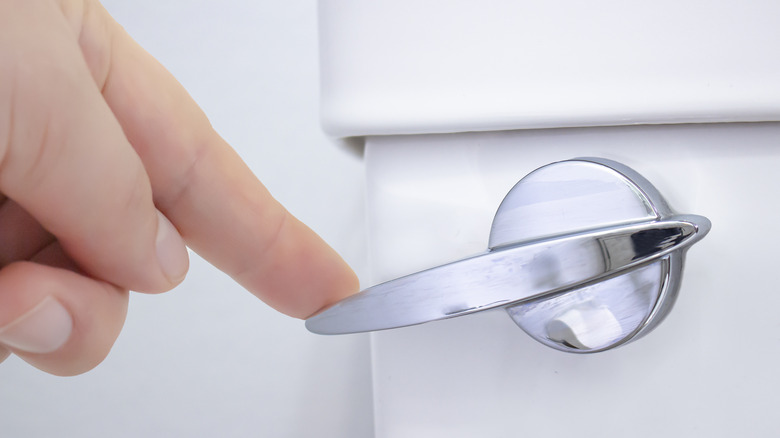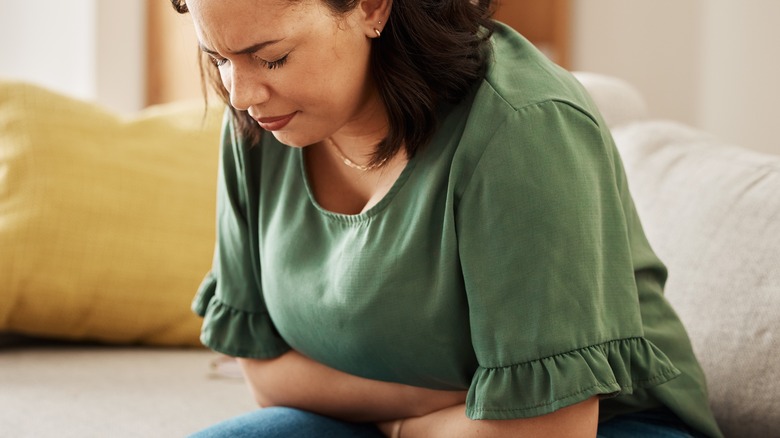What It Means When Your Poop Has Cracks
While most of us probably prefer to do our business and flush it down the toilet without giving it a second thought, it's worth glancing down at our stool every now and again. "Your bowel movements are the only real marker you have about what your GI health is like," Dr. Anish Sheth, a board-certified gastroenterologist at Penn Medicine's Center for Digestive Health, told Prevention. The appearance, smell, and texture of our bowel movements can provide us with many of these clues.
Experts at UnityPoint Health explain that there are approximately seven different kinds of poop textures. Normal poops are soft, brown, sausage-shaped, and about as wide as a banana. They're also smooth, don't break apart when flushed, and measure about 4 to 8 inches in length. Of course, our stool may not look like this all day every day. Dietary changes, illness, or the use of certain medications may cause changes to our poop's consistency. Stools may suddenly appear watery, discolored, or shaped differently. In some instances, these changes may be less obvious. The next time you glance down into the toilet, if all generally looks well but you notice some cracks on the surface of your stool, it could mean a few different things.
You may be constipated, dehydrated, or spending too much time seated
If your poop has cracks in it, it may be a reflection of a sedentary lifestyle (via UnityPoint Health). While healthy bowel movements usually occur either every day or once every few days, cracked stool indicates that waste has been residing in the digestive tract for about a week.
Alternatively, cracked stool may indicate that you're not drinking enough water, according to Prevention. Experts recommend consuming about 6 to 8 glasses of water on a daily basis to help ensure you're keeping your body adequately hydrated. Similarly, cracks in one's stool may be a sign of constipation. The National Institute of Diabetes and Digestive and Kidney Diseases (NIDDK) reports that constipation is characterized as going number two less than three times a week. Stools may be dry and hard, and bowel movements may feel incomplete. Approximately 16 per every 100 American adults are affected by constipation.
Ways to support your gut health
Cracked stool is not always indicative of a problem, however. If your poop is otherwise normal — meaning it's soft, sausage-shaped, and requires minimal force to pass — having a few surface cracks means that your gastrointestinal health is in good shape (via Prevention).
If you want to uplevel your gut health, start by making sure you're getting plenty of H2O and fiber in your diet. The NIDDK states that individuals should aim to get approximately 22 to 34 grams of fiber daily. Additionally, try to exercise on a regular basis, as this can help jumpstart digestion and get things moving as they should. Changes in one's stool are bound to happen from time to time. However, if you notice any accompanying symptoms (such as bleeding, fever, severe diarrhea, or vomiting) or these changes in your poop's texture, smell, or shape persist for several days, be sure to reach out to your physician.



